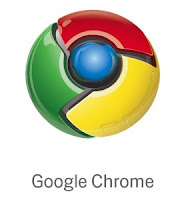Yes, lets all take a deep breath, shall we?
 I take the title of this post from Fake Steve Jobs' post, "Let's all take a deep breath and get some perspective." FSJ's post was bitingly funny (as always) and pointed out some interesting truths (again, as always). But then I ran into Jack Schofield's article on Google's Chrome OS, where he went on to opine:
I take the title of this post from Fake Steve Jobs' post, "Let's all take a deep breath and get some perspective." FSJ's post was bitingly funny (as always) and pointed out some interesting truths (again, as always). But then I ran into Jack Schofield's article on Google's Chrome OS, where he went on to opine:Either way, the idea that businesses are soon going to replace Windows with Chrome OS is beyond fanciful. Businesses whinge like mad when they have to adapt one of their tens of millions of "legacy" programs to run properly on IE8 rather than IE7, or IE7 rather than IE6, or whatever. The minor changes from XP to Vista were apparently beyond many of them. They're not going to rewrite 10-15 years worth of programs to run them via Chrome OS any time soon. Even if they want to, and can afford the attempt, it's going to take a decade.Wowsers! He's absolutely right, if you assume that Google is trying to push Chrome OS as a replacement for Windows. But that's not what Google said. Let's go back to Google's blog announcement and re-read that, shall we?
Google Chrome OS is an open source, lightweight operating system that will initially be targeted at netbooks... Google Chrome OS will run on both x86 as well as ARM chips and we are working with multiple OEMs to bring a number of netbooks to market next year. The software architecture is simple — Google Chrome running within a new windowing system on top of a Linux kernel. For application developers, the web is the platform.. All web-based applications will automatically work and new applications can be written using your favorite web technologies. And of course, these apps will run not only on Google Chrome OS, but on any standards-based browser on Windows, Mac and Linux thereby giving developers the largest user base of any platform.OK. So let's look at the little nuggets in the section quoted from Google. They're targeting netbooks, the lowest powered group of devices in the notebook pantheon, what many call "good enough" computers. Powered by processors with the same computational throughput you had 10-15 years ago when the 486 was considered low-end ghetto and the Pentium 2's and 3's were being introduced (remember all those slot-based processor modules?). And not just low-end x86, but ARM based systems as well.
Google is also targeting the Web. I don't know how many times they said it, but over and over they stressed that Chrome OS is a portable front-end to the Web, and the Web services in particular. Not Windows (XP, Vista, or 7). Not Microsoft Office. Nor any of the "tens of millions of legacy programs." This is an OS with very specific targets, and believe it or not, desktop Windows isn't one of them.
What Google is promising is an OS that is streamlined and targeted to run on those platforms in order to provide a good user experience. That's a far cry from Linux and Microsoft, who are attempting to take their current bloated offerings and shoe-horn it onto these deliberately limited platforms. This is good engineering on Google's part, a far cry from the lazy 'business as usual' attitudes from Microsoft and the various Linux camps. People choose Windows over Linux on netbooks, not so much because Windows is better, but because Windows is the lesser of two evils on those platforms.
If Google builds Chrome OS right, then it really won't matter if it's not Windows. And frankly it won't be mainstream Linux either, which will definitely be a Good Thing. Because it's about time we had a genuinely new OS to work with. Henry Spencer once said "Those who don't understand UNIX are condemned to reinvent it, poorly." The same can be said of graphical user interfaces. If we consider the lineage of GUIs from Xerox's gold standard through Apple's poor interpretation on through Microsoft's poorer interpretation and finally into Linux's even poorer interpretation, then the time is long past due for a reboot, if not a revolution, of the entire environment. Google wants to do that with netbooks because the classic PC desktop has long since fossilized under layer after layer Windows detritus. Google wouldn't have a snowball's chance in hell of pushing this directly against Windows on the PC platform, and Google knows it.
Google is here to really tip over everybody's special apple carts on the netbook platform. They really can pull this off. I hope they succeed. I wish them well.

Comments
Post a Comment
All comments are checked. Comment SPAM will be blocked and deleted.